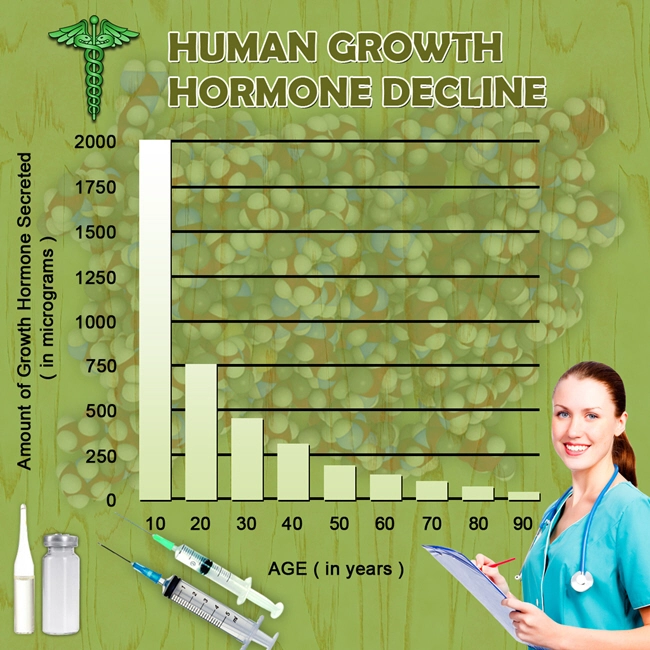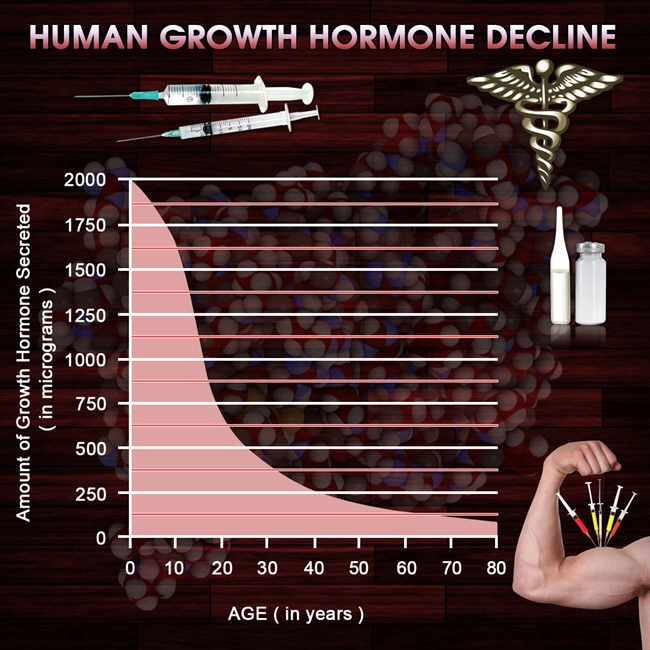
Introduction
Chronic illnesses such as diabetes, heart disease, and kidney disease can significantly impact the quality of life for American males. One of the less discussed but equally important aspects of these conditions is their effect on sexual health, particularly erectile dysfunction (ED). This article aims to shed light on the intricate relationship between chronic illness and ED, offering insights and guidance for managing these intertwined health issues.
Understanding the Link Between Chronic Illness and ED
Chronic diseases often lead to physiological changes that can directly or indirectly contribute to ED. For instance, diabetes can damage blood vessels and nerves, impairing the blood flow necessary for an erection. Similarly, cardiovascular diseases can restrict blood flow, while kidney disease may lead to hormonal imbalances affecting sexual function. Understanding these connections is crucial for both patients and healthcare providers to address ED effectively.
The Psychological Impact of Chronic Illness on Sexual Health
Beyond the physical aspects, chronic illnesses can also have a profound psychological impact, exacerbating ED. The stress and anxiety associated with managing a long-term health condition can lead to performance anxiety, further complicating sexual function. Depression, which is common among those with chronic illnesses, can also diminish libido and sexual satisfaction. Recognizing and addressing these psychological factors is essential for a holistic approach to managing ED.
Strategies for Managing ED in the Context of Chronic Illness
Managing ED while dealing with a chronic illness requires a multifaceted approach. Here are several strategies that can be effective:
- **Medical Management:** Working closely with healthcare providers to manage the underlying chronic condition can help mitigate its impact on sexual health. Medications, such as phosphodiesterase type 5 inhibitors (e.g., Viagra, Cialis), can be effective for ED, but their use should be carefully considered in the context of other medications and health conditions.
- **Lifestyle Modifications:** Adopting a healthy lifestyle can improve overall health and sexual function. This includes maintaining a balanced diet, engaging in regular physical activity, quitting smoking, and limiting alcohol consumption. These changes can enhance cardiovascular health and improve blood flow, which is crucial for erectile function.
- **Psychological Support:** Addressing the psychological aspects of chronic illness and ED is vital. Counseling or therapy can help manage stress, anxiety, and depression, improving overall well-being and sexual health. Couples therapy can also be beneficial in addressing relationship dynamics affected by ED.
- **Communication:** Open communication with partners about the challenges posed by chronic illness and ED can foster understanding and support. Discussing these issues openly can reduce the emotional burden and enhance intimacy.
The Role of Technology and Innovation
Advancements in medical technology and treatments offer hope for those managing chronic illness and ED. From vacuum erection devices to penile implants, various options are available for those who do not respond to traditional medications. Additionally, telemedicine has made it easier for men to seek help discreetly and conveniently, breaking down barriers to care.
Conclusion
Navigating the challenges of chronic illness and erectile dysfunction is a complex but manageable task. By understanding the physiological and psychological links between these conditions, American males can take proactive steps to improve their sexual health. Through a combination of medical management, lifestyle changes, psychological support, and open communication, it is possible to enhance quality of life and maintain fulfilling sexual relationships despite the challenges posed by chronic illness.
Contact Us Today For A Free Consultation
Dear Patient,
Once you have completing the above contact form, for security purposes and confirmation, please confirm your information by calling us.
Please call now: 1-800-380-5339.
Welcoming You To Our Clinic, Professor Tom Henderson.

- Exploring New Horizons: Overcoming Erectile Dysfunction to Rekindle Romantic Intimacy [Last Updated On: February 15th, 2025] [Originally Added On: February 15th, 2025]
- Embarking on the Journey of Triumph: A Comprehensive Guide to Conquer Erectile Dysfunction [Last Updated On: February 25th, 2025] [Originally Added On: February 25th, 2025]
- Triumph Over Trials: Overcoming Battles with Erectile Dysfunction [Last Updated On: February 26th, 2025] [Originally Added On: February 26th, 2025]
- Alchemy of Attraction: Grasping the Biomechanical Puzzle of Erectile Dysfunction [Last Updated On: February 27th, 2025] [Originally Added On: February 27th, 2025]
- Breaking the Stigma: Understanding and Overcoming Erectile Dysfunction [Last Updated On: February 28th, 2025] [Originally Added On: February 28th, 2025]
- Unraveling Misconceptions: A Comprehensive Analysis of Erectile Dysfunction [Last Updated On: February 28th, 2025] [Originally Added On: February 28th, 2025]
- Breaking Through the Shadows: Unveiling the Psychological Implications of Erectile Dysfunction [Last Updated On: March 1st, 2025] [Originally Added On: March 1st, 2025]
- The Pill or The Promise: Unveiling The Comparative Efficiency of Erectile Dysfunction Medications [Last Updated On: March 2nd, 2025] [Originally Added On: March 2nd, 2025]
- Enhancing Intimacy in Modern Relationships: The Role of Medical Interventions, Psychological Counseling, and Lifestyle Changes in Improving Sexual Health [Last Updated On: March 3rd, 2025] [Originally Added On: March 3rd, 2025]
- Navigating the Path to Recovery: Understanding and Managing Erectile Dysfunction [Last Updated On: March 3rd, 2025] [Originally Added On: March 3rd, 2025]
- Comprehensive Guide to Understanding and Treating Erectile Dysfunction [Last Updated On: March 4th, 2025] [Originally Added On: March 4th, 2025]
- Exploring the Psychological Impact of Erectile Dysfunction on Men and Relationships [Last Updated On: March 5th, 2025] [Originally Added On: March 5th, 2025]
- Understanding Erectile Dysfunction: Causes, Treatment, and Medication Efficacy [Last Updated On: March 6th, 2025] [Originally Added On: March 6th, 2025]
- The Evolution of Erectile Dysfunction Treatments: From Ancient Remedies to Modern Innovations [Last Updated On: March 7th, 2025] [Originally Added On: March 7th, 2025]
- Revolutionizing Erectile Dysfunction Treatment: Innovations, Telemedicine, and Personalized Care [Last Updated On: March 8th, 2025] [Originally Added On: March 8th, 2025]
- The Vascular Role in Erectile Dysfunction: Understanding, Treatment, and Holistic Management [Last Updated On: March 9th, 2025] [Originally Added On: March 9th, 2025]
- Unveiling the Battle: Testosterone's Impact on Erectile Dysfunction in American Men [Last Updated On: March 12th, 2025] [Originally Added On: March 12th, 2025]
- Lifestyle Changes to Combat Erectile Dysfunction in American Males [Last Updated On: March 13th, 2025] [Originally Added On: March 13th, 2025]
- Overcoming Erectile Dysfunction: Causes, Treatments, and Inspiring Recovery Stories [Last Updated On: March 13th, 2025] [Originally Added On: March 13th, 2025]
- Unveiling the Truth: Dispelling Myths About Erectile Dysfunction in American Men [Last Updated On: March 15th, 2025] [Originally Added On: March 15th, 2025]
- Exploring Alternative Therapies for Erectile Dysfunction in American Males [Last Updated On: March 17th, 2025] [Originally Added On: March 17th, 2025]
- Telemedicine's Role in Managing Erectile Dysfunction: Benefits and Challenges [Last Updated On: March 18th, 2025] [Originally Added On: March 18th, 2025]
- Innovative Therapies and Technology Transforming Erectile Dysfunction Treatment in the U.S. [Last Updated On: March 18th, 2025] [Originally Added On: March 18th, 2025]
- Erectile Dysfunction: Understanding, Treating, and Empowering American Men [Last Updated On: March 19th, 2025] [Originally Added On: March 19th, 2025]
- Global Approaches to Erectile Dysfunction: Treatments Compared for American Males [Last Updated On: March 19th, 2025] [Originally Added On: March 19th, 2025]
- Erectile Dysfunction: Couples' Guide to Understanding, Treating, and Overcoming ED Together [Last Updated On: March 19th, 2025] [Originally Added On: March 19th, 2025]
- Managing Erectile Dysfunction: Medical, Lifestyle, and Mental Health Approaches [Last Updated On: March 19th, 2025] [Originally Added On: March 19th, 2025]
- Stress, Sleep, and ED: Strategies for American Men to Enhance Sexual Health [Last Updated On: March 19th, 2025] [Originally Added On: March 19th, 2025]
- Boosting Libido and Combating ED with Diet and Exercise: A Guide for American Men [Last Updated On: March 20th, 2025] [Originally Added On: March 20th, 2025]
- Managing Erectile Dysfunction: A Holistic Guide for American Men [Last Updated On: March 21st, 2025] [Originally Added On: March 21st, 2025]
- Exploring Treatments for Erectile Dysfunction: Pills, Injections, and Beyond [Last Updated On: March 21st, 2025] [Originally Added On: March 21st, 2025]
- Natural Remedies and Lifestyle Changes to Combat Erectile Dysfunction in American Men [Last Updated On: March 21st, 2025] [Originally Added On: March 21st, 2025]
- Erectile Dysfunction in the U.S.: Prevalence, Impacts, and Holistic Management Approaches [Last Updated On: March 22nd, 2025] [Originally Added On: March 22nd, 2025]
- Erectile Dysfunction: Causes, Treatments, and Lifestyle Impact on American Men [Last Updated On: March 23rd, 2025] [Originally Added On: March 23rd, 2025]
- Erectile Dysfunction: Costs, Treatments, and Financial Management Strategies for American Males [Last Updated On: March 23rd, 2025] [Originally Added On: March 23rd, 2025]
- Counseling's Vital Role in Treating Erectile Dysfunction: A Comprehensive Approach [Last Updated On: March 23rd, 2025] [Originally Added On: March 23rd, 2025]
- Vascular Health's Crucial Role in American Males' Erectile Function [Last Updated On: March 23rd, 2025] [Originally Added On: March 23rd, 2025]
- Exercise as a Holistic Approach to Managing Erectile Dysfunction in American Men [Last Updated On: March 23rd, 2025] [Originally Added On: March 23rd, 2025]
- CBT: A Powerful Therapy for American Males with Erectile Dysfunction [Last Updated On: March 24th, 2025] [Originally Added On: March 24th, 2025]
- Celebrity Influence Boosts Awareness and Treatment of Erectile Dysfunction in Men [Last Updated On: March 24th, 2025] [Originally Added On: March 24th, 2025]
- Erectile Dysfunction: From Taboo to Treatable - Media and Medical Insights for American Men [Last Updated On: March 24th, 2025] [Originally Added On: March 24th, 2025]
- Restorative Sleep: A Key to Enhancing Erectile Function in American Males [Last Updated On: March 24th, 2025] [Originally Added On: March 24th, 2025]
- Male Anatomy and Erectile Dysfunction: Causes, Diagnosis, and Treatment Strategies [Last Updated On: March 24th, 2025] [Originally Added On: March 24th, 2025]
- Work Stress and Its Impact on Men's Sexual Health: Understanding ED [Last Updated On: March 24th, 2025] [Originally Added On: March 24th, 2025]
- Personalized Approaches to Treating Erectile Dysfunction in American Men [Last Updated On: March 24th, 2025] [Originally Added On: March 24th, 2025]
- Erectile Dysfunction's Impact on Self-Esteem: Strategies for American Males to Rebuild Confidence [Last Updated On: March 24th, 2025] [Originally Added On: March 24th, 2025]
- Understanding and Overcoming Performance Anxiety and Erectile Dysfunction in Men [Last Updated On: March 25th, 2025] [Originally Added On: March 25th, 2025]
- Transformative ED Treatments: Success Stories and Innovations Across U.S. Clinics [Last Updated On: March 25th, 2025] [Originally Added On: March 25th, 2025]
- Nerve Damage and Erectile Dysfunction: Causes, Diagnosis, and Treatment Options [Last Updated On: March 25th, 2025] [Originally Added On: March 25th, 2025]
- Erectile Dysfunction: An Early Indicator of Cardiovascular Disease in American Males [Last Updated On: March 25th, 2025] [Originally Added On: March 25th, 2025]
- Wearable Technology: A New Frontier in Managing Erectile Dysfunction [Last Updated On: March 25th, 2025] [Originally Added On: March 25th, 2025]
- Erectile Dysfunction: Navigating Impact, Communication, and Recovery in Relationships [Last Updated On: March 25th, 2025] [Originally Added On: March 25th, 2025]
- Essential Nutrients for Enhancing Sexual Health and Combating Erectile Dysfunction [Last Updated On: March 25th, 2025] [Originally Added On: March 25th, 2025]
- Cutting-Edge ED Treatments: Shockwave, Gene, and Stem Cell Therapies Offer New Hope [Last Updated On: March 25th, 2025] [Originally Added On: March 25th, 2025]
- Managing Erectile Dysfunction: Communication, Intimacy, and Professional Help for American Men [Last Updated On: March 26th, 2025] [Originally Added On: March 26th, 2025]
- PDE5 Inhibitors: Revolutionizing Erectile Dysfunction Treatment in American Males [Last Updated On: March 26th, 2025] [Originally Added On: March 26th, 2025]
- Erectile Dysfunction and Mental Health: Navigating Depression and Anxiety in American Men [Last Updated On: March 26th, 2025] [Originally Added On: March 26th, 2025]
- Revolutionizing Men's Health: Advanced Treatments for Erectile Dysfunction [Last Updated On: March 26th, 2025] [Originally Added On: March 26th, 2025]
- New Medications and Therapies Revolutionizing Erectile Dysfunction Treatment [Last Updated On: March 26th, 2025] [Originally Added On: March 26th, 2025]
- Understanding Erections and Managing Erectile Dysfunction in American Men [Last Updated On: March 27th, 2025] [Originally Added On: March 27th, 2025]
- Navigating Erectile Dysfunction: Rebuilding Romance and Intimacy in Relationships [Last Updated On: March 27th, 2025] [Originally Added On: March 27th, 2025]
- Natural Remedies for Erectile Dysfunction: Ginseng, L-Arginine, and Horny Goat Weed [Last Updated On: March 27th, 2025] [Originally Added On: March 27th, 2025]
- Managing Performance Anxiety and ED: Strategies for American Men [Last Updated On: March 28th, 2025] [Originally Added On: March 28th, 2025]
- Enhancing Sexual Health: Diet, Lifestyle, and Medical Strategies for American Men [Last Updated On: March 28th, 2025] [Originally Added On: March 28th, 2025]
- Exploring Non-Drug Treatments for Erectile Dysfunction in American Men [Last Updated On: March 28th, 2025] [Originally Added On: March 28th, 2025]
- Holistic Approaches to Overcome Erectile Dysfunction in American Males [Last Updated On: March 28th, 2025] [Originally Added On: March 28th, 2025]
- Erectile Dysfunction: Causes, Management Strategies, and Expert Health Tips [Last Updated On: March 28th, 2025] [Originally Added On: March 28th, 2025]
- Physical Therapy: A Promising Approach to Treating Erectile Dysfunction in American Males [Last Updated On: March 29th, 2025] [Originally Added On: March 29th, 2025]
- Erectile Dysfunction and Prostate Health: Understanding the Vital Connection for Men [Last Updated On: March 30th, 2025] [Originally Added On: March 30th, 2025]
- Erectile Dysfunction: Holistic Approaches for American Men's Sexual Health [Last Updated On: March 30th, 2025] [Originally Added On: March 30th, 2025]
- Navigating Erectile Dysfunction: A Comprehensive Guide to Consultations and Treatment [Last Updated On: March 31st, 2025] [Originally Added On: March 31st, 2025]
- Managing Erectile Dysfunction: The Power of Positivity and Mental Strategies [Last Updated On: April 1st, 2025] [Originally Added On: April 1st, 2025]
- Erectile Dysfunction: Understanding Causes, Breaking Stigma, and Exploring Modern Treatments [Last Updated On: April 3rd, 2025] [Originally Added On: April 3rd, 2025]
- Transforming ED into Deeper Intimacy: A Journey for American Couples [Last Updated On: April 4th, 2025] [Originally Added On: April 4th, 2025]
- Erectile Dysfunction: Personalized Treatment Approaches and Dosage Considerations [Last Updated On: April 5th, 2025] [Originally Added On: April 5th, 2025]
- Future of ED Treatment: Innovations in Drug Delivery and Technology [Last Updated On: April 5th, 2025] [Originally Added On: April 5th, 2025]
- Erectile Dysfunction: From Research Innovations to Practical Solutions and Future Directions [Last Updated On: April 6th, 2025] [Originally Added On: April 6th, 2025]
- Genetic Factors in ED: Personalizing Treatment for American Males [Last Updated On: April 9th, 2025] [Originally Added On: April 9th, 2025]
- Erectile Dysfunction Medications: Enhancing Confidence and Performance in American Males [Last Updated On: April 9th, 2025] [Originally Added On: April 9th, 2025]
- Diabetes and Erectile Dysfunction: Understanding Links, Diagnosis, and Management Strategies [Last Updated On: April 10th, 2025] [Originally Added On: April 10th, 2025]









